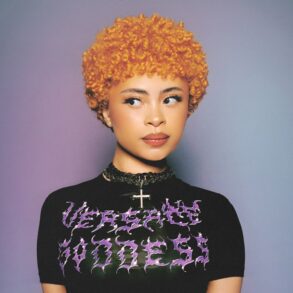Remy Ma, MC Lyte and Dee Barnes
” data-medium-file=”https://i0.wp.com/spokesman-recorder.com/wp-content/uploads/2023/09/Ladies-First.grid_.5.jpg?fit=336%2C224&ssl=1″ data-large-file=”https://i0.wp.com/spokesman-recorder.com/wp-content/uploads/2023/09/Ladies-First.grid_.5.jpg?fit=771%2C514&ssl=1″ decoding=”async” fetchpriority=”high” width=”771″ height=”514″ src=”https://i0.wp.com/spokesman-recorder.com/wp-content/uploads/2023/09/Ladies-First.grid_.5.jpg?resize=771%2C514&ssl=1″ alt class=”wp-image-1132677″ srcset=”https://i0.wp.com/spokesman-recorder.com/wp-content/uploads/2023/09/Ladies-First.grid_.5.jpg?resize=771%2C514&ssl=1 771w, https://i0.wp.com/spokesman-recorder.com/wp-content/uploads/2023/09/Ladies-First.grid_.5.jpg?resize=336%2C224&ssl=1 336w, https://i0.wp.com/spokesman-recorder.com/wp-content/uploads/2023/09/Ladies-First.grid_.5.jpg?resize=768%2C512&ssl=1 768w, https://i0.wp.com/spokesman-recorder.com/wp-content/uploads/2023/09/Ladies-First.grid_.5.jpg?resize=750%2C500&ssl=1 750w, https://i0.wp.com/spokesman-recorder.com/wp-content/uploads/2023/09/Ladies-First.grid_.5.jpg?resize=1140%2C760&ssl=1 1140w, https://i0.wp.com/spokesman-recorder.com/wp-content/uploads/2023/09/Ladies-First.grid_.5.jpg?w=1500&ssl=1 1500w” sizes=”(max-width: 771px) 100vw, 771px” data-recalc-dims=”1″>
Remy Ma, MC Lyte and Dee Barnes
It’s impossible to document all 50 years of contributions, experiences and legacies of women in hip hop, but the new four-part Netflix docuseries, “Ladies First: A Story of Women in Hip Hop,” gamely attempts it.
Although it doesn’t exactly go all the way back to Cindy Campbell’s historic August 11, 1973 party at 1520 Sedgwick Ave. in the Bronx, the series traces hip hop from its earliest days as a unique expression of the inner lives of urban, working-class Black Americans of the late 20th century to the global cultural juggernaut it is today.
“Ladies First” begins its chronicling around 1977, when there was a plethora of teen girl emcees and B-girls going toe-to-toe with their male counterparts.
One of those girls, Sha-Rock, figures prominently in the docuseries. Often referred to as “Mother of the Mic,” she was the first well-known female emcee. Sadly, too many hip-hop fans today have never heard of her, a tragedy “Ladies First” aims to change.
In addition to Sha-Rock, “Ladies First” presents many significant contributors to hip-hop via direct interviews and/or archival footage. They include lyrical luminaries such as Cardi-B, Queen Latifah, Rah Digga, Remy Ma, Monie Love, Lauryn Hill, TLC, Salt-N-Pepa, MC Lyte, Kash Doll, Megan Thee Stallion, Tierra Wack, Rapsody, Nicki Minaj, YoYo, Da Brat, and Roxanne Shante, waxing nostalgic and philosophical about the art, history, culture and business of hip hop.
– ADVERTISEMENT –
Those who did the important work of documenting, curating and promoting hip hop such as journalists and critics Joan Morgan, Rianna Jade Parker, and Britney Copper, TV host Dee Barnes, archivist Syreeta Gates, and others come together in “Ladies First” in studied celebration of the bold, iconoclastic art form.
The series ably captures the accomplishments of women in hip hop and the particular hurdles Black women in the industry face, such as the “First Lady” phenomenon (which basically states that there can only be one woman member of any rap crew), sexual assault, financial exploitation, cultural appropriation, and the glass ceiling that kept many from becoming major players.
As Def Jam Exec Drew Dixon graphically explains, for a woman in hip hop, “Unless I’m f***ing somebody powerful, I’m dead in the water.”
Still, “Ladies First” falters in its scarce coverage of the few women who exercised real power in hip hop, managing to push it forward by being a part of the decision-making structure, such as label heads Sylvia Robinson and Sylvia Rhone.
Further, though archival footage features rapper KRS One indicating that hip hop encompasses “art, dance and lifestyle,” the docuseries’ lens remains somewhat disappointingly squarely on the music. Progenitors of hip hop’s bold visual style such as costumer June Ambrose and stylist Misa Hylton receive scant mention.
– ADVERTISEMENT –
Another missed opportunity was failing to tackle an issue that stares the viewer in the face as “Ladies First” does its comprehensive survey of women in hip hop.
Discussion of rapper KRS’ dis of then-16-year-old rapper Roxanne Shante characterizing her as “only good for steady f***ing,” was framed only as an example of Roxanne Shante’s fame and the growing tradition of “beef” between rappers.
Later, there is a lengthy discourse about the then-teenaged Lil Kim and Foxy Brown’s departure from traditional lyrical and visual norms. As journalist Joan Morgan described them in her iconic feminist treatise “When Chickenheads Come Home to Roost: A Hip Hop Feminist Breaks It Down”: “These baby girls, with their history-making multi-platinum debuts, have the lyrical personas of hyper-sexed, couture-clad hooch mamas.”
“Ladies First” argues that they changed the way women in hip-hop were marketed, and that their overtly sexual images and lyrics triggered misogyny. However, these discussions don’t go as deep as they should, to the damaging and disturbing phenomenon of the adultification of Black girls in general.
Though Morgan is herself a contributor in “Ladies First,” the discussion of sexuality in hip hop is limited to themes of empowerment, itself a complicated and nuanced subject because Black women and girls have always been considered hypersexual.
– ADVERTISEMENT –
There is also no discussion of the connection for women between beauty, access to power, and Black women’s relationship to European beauty standards. For record executives unable to see and/or promote Black women’s beauty, sex is seen as a logical alternative.
Exciting and energizing in its breadth, “Ladies First” can be frustrating in its lack of depth, and as much as the viewer will revel in the amazing accomplishments of the women featured, they’ll be reminded there are still many stories the ladies of hip hop have yet to tell.
“Ladies First: A Story of Women in Hip Hop” is currently streaming on Netflix. For more info, visit bit.ly/LadiesFirstNetflix.
Support Black local news
Help amplify Black voices by donating to the MSR. Your contribution enables critical coverage of issues affecting the community and empowers authentic storytelling.




